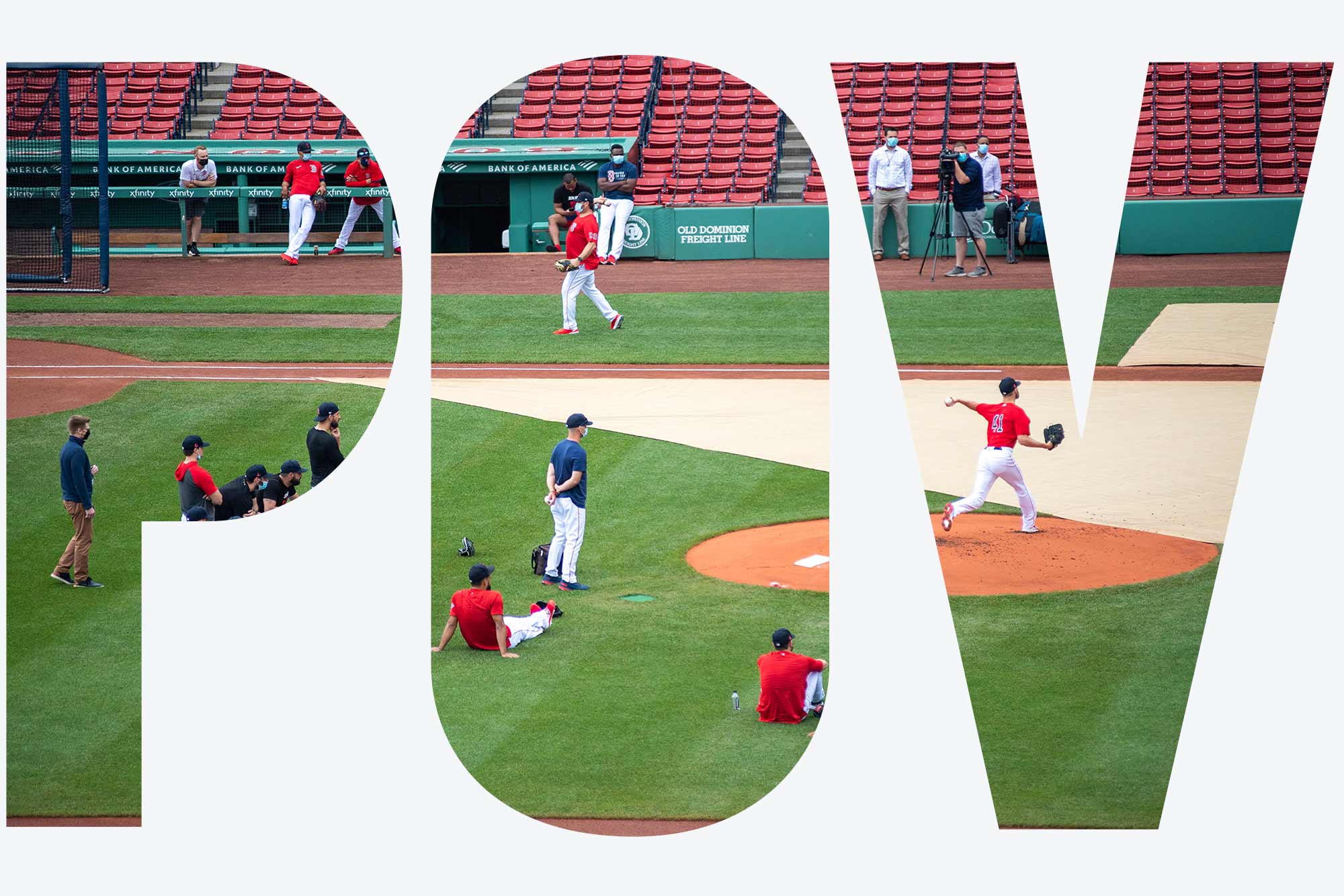POV: Three Jeers for the Anti-Vax Red Sox

Photo by Cydney Scott
POV: Three Jeers for the Anti-Vax Red Sox
Not too long ago, the team’s biggest star proclaimed, “This is our [expletive] city.” Too many people on this year’s club don’t feel the same way
It took exactly one day back at school for my family to have its first COVID scare of this precarious academic year. My daughter had just come home from her first day of pre-K when we got an alert on our phones: someone at school had tested positive for the virus, and close contacts were quarantining as a precaution. My daughter wasn’t one of them, but I didn’t sleep for the next three nights.
In some ways, this spring and summer have been the hardest months of the pandemic for us. Like other parents of young kids, my wife and I were vaccinated the first chance we got. But the shot didn’t really decrease our anxiety; it just refocused it on our children, who, at 4 and 7, aren’t yet eligible. So as the “hot vax summer” revved up (and then cooled down with the Delta variant), we continued to pick our way through the pandemic minefield, wondering how to reopen the world for our kids without exposing them to unnecessary risks. And now we’re sending them back to school, hoping that masks and distancing keep them safe until the Food and Drug Administration allows vaccines for younger children.
Coincidentally, my daughter started school the same day Red Sox pitcher Chris Sale revealed that he hasn’t gotten the vaccine. I was at work when I saw the news, and my first reaction was blind rage. Of course I knew about the slow-rolling outbreak spreading through the clubhouse, and I knew that the Sox were one of six teams not to have hit the MLB’s recommended vaccination threshold of 85 percent. But the fact that our ace—our savior, the guy who was supposed to come off the injured reserve and lead us to the playoffs—won’t get the shot was the last straw for me.
I grew up in the Midwest, but fell in love from afar with the Red Sox of Mo, Nomar, and Pedro. I moved to New England in 2000, just in time to witness the best two decades in Red Sox (and Boston) sports history. But what bound me to the Red Sox wasn’t the winning. It was the fact that they’re so clearly part of the community. Big Papi, David Ortiz (Hon.’17), said it best after the bombings in 2013: “This is our f**king city.”
One of the striking truths that COVID has laid bare is just how connected we all are to one another—and just how much we rely on one another for our health and well-being. As the philosopher Emmanuel Levinas wrote, we are born responsible for one another. When I got vaccinated, I didn’t do it only for my body and my family; I did it for my friends, my parents, my coworkers, my students, and my neighbors.
So when Chris Sale and Tom Goodwin and Christian Arroyo and at least a dozen additional members of the organization forgo vaccination, they’re not just risking their own safety—they’re endangering the public health of the city they supposedly represent, both with their own behavior and with the example they set.
Despite all this, Sox manager Alex Cora recently said that “this is a time to enjoy.” Forgive me, Alex, but I’m not enjoying any of this. I’m just angry. So I’m done with the Red Sox for this year. I’m not going to their games, I’m not watching them on TV, and I’m not buying their merch—even though it’s quite likely they’ll contend for the World Series. If they won’t fully support their city, I’m not going to support them.
This opinion piece originally appeared in the Boston Globe on September 24.
Joshua Pederson (GRS’08), a College of General Studies associate professor of humanities and the author of Sin Sick: Moral Injury in War and Literature, can be reached at pederson@bu.edu.
Comments & Discussion
Boston University moderates comments to facilitate an informed, substantive, civil conversation. Abusive, profane, self-promotional, misleading, incoherent or off-topic comments will be rejected. Moderators are staffed during regular business hours (EST) and can only accept comments written in English. Statistics or facts must include a citation or a link to the citation.